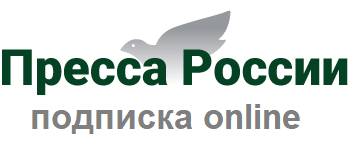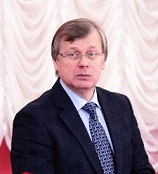Contents
OUR SPIRITUAL VALUES
I.P.ZOLOTUSSKY —
“There is no flattery in my language”.
N.M.Karamzin — historian, writer, personality
A.G.RUMYANTSEV —
“…The whole essence of Russian life”.
“Notes of the Hunter” by I.S.Turgenev
O.N.MAKARICHEVA —
From Agafia Pshenitsyna (I.A.Goncharov “Oblomov”) to Praskovia Zarnitsyna (F.M.Dostoevsky “Crime and Punishment”)
Zhang YUWEI —
Formation of unconscious being in the early stories of Boris Zaitsev
A.G.LILEEVA —
The history of the title of the Boris Pasternak’s novel “Doctor Zhivago”: the linguistic and cultural aspect
SEARCH. EXPERIENCE. SKILLS
Learning how to write an essay
G.V.PRANTSOVA, E.S.ROMANICHEVA —
Methodical approaches to teaching how to write the final essay: from theory to practice
Lessons
I.A.GRIGORCHENKO, AI.POLKANOVA —
Revived pages of the “Letters of the Russian traveler” by N.M.Karamzin.
Interactive tour
E.I.BELOUSOVA —
Historical and cultural aspect of the study of Russian classics on the example of the A.S.Pushkin’s ballad “The Song of the Wise Oleg”
T.A.KALGANOVA —
Studying the story of N.V.Gogol’s “Nevsky Prospect” together with Y.V.Mann
Modern literature in the school of the XXIth century
O.O.PUTILO, E.Y.STARIKOVA, E.P.MESCHERYAKOVA —
Z.Prilepin’s novel “Abode” as a continuation of the “camp prose”
Teachers of the teachers
V.P.ZHURAVLYOV —
Author of the first literature textbook. On the 115th anniversary of G.L.Abramovich
Current Events
O.V.NIKITIN —
IV All-Russian Belov Readings in Vologda
Abstracts and keywords
OUR SPIRITUAL VALUES
I.P.ZOLOTUSSKY —
“There is no flattery in my language”.
N.M.Karamzin — historian, writer, personality
Abstract. The author shows an example of an honest attitude to history which has no lies, mockery or the desire to subordinate it to another political trend. Karamzin, his life and works give us such an example.
Keywords: history, love and respect for the past, appeal to the present, modern sounding of Karamzin’s works, Pushkin is the successor of Karamzin.
A.G.RUMYANTSEV —
“…The whole essence of Russian life”.
“Notes of the Hunter” by I.S.Turgenev
Abstract. The author analyzes the “Notes of the Hunter”, in which various Russian characters are presented as well as thoughts about our life and poetry, which the artist glorifies.
Keywords: discovery of life from the new side, typical heroes; penetrating mind, writer’s gift; inspired word; rhythm and music, Russian tradition of the narrative.
O.N.MAKARICHEVA —
From Agafia Pshenitsyna (I.A.Goncharov “Oblomov”) to Praskovia Zarnitsyna (F.M.Dostoevsky “Crime and Punishment”)
Abstract. The article considers the image of a “traditional” woman in the works of Pushkin, Chekhov, Dostoevsky and Goncharov. Particular attention is paid to the minor character in “Crime and Punishment” — Pashenka as Agafia Pshenitsyna’s (“Oblomov”) “heiress”. The connection of these female characters with the ancient mythological ideas about role of women in the world is considered.
Keywords: female image, natural and patrimonial origin, typology of female characters, Christian axiology.
Zhang YUWEI —
Formation of unconscious being in the early stories of Boris Zaitsev
Abstract. The material of V.Zaitsev’s early stories “Wolves”, “Mist”, “Earth”, “Ocean” is used to explore the problem of the unconscious being of man in the world. The method of impressionism, used for the embodiment of this phenomenon, is disclosed and emphasis is placed on the pantheistic attitude of the writer during this period.
Keywords: B.Zaitsev, impressionism, pantheism, being.
A.G.LILEEVA —
The history of the title of the Boris Pasternak’s novel “Doctor Zhivago”: the linguistic and cultural aspect
Abstract. The article describes the strategy for presenting an artistic text in the classes of “Russian as a Foreign Language” and semantic significance of the title in a work of art. Commenting on the title of the Boris Pasternak’s novel “Doctor Zhivago”, the cultural component of the meaning of the words doctor, alive, the history of the title, we can understand the novel’s intent and the originality of the author’s stylistic manner as a whole. The proposed material can be used in school.
Keywords: artistic text, interpretation, role of the title, specificity of the poetic word, linguo-culturology.
SEARCH. EXPERIENCE. SKILLS
Learning how to write an essay
G.V.PRANTSOVA, E.S.ROMANICHEVA —
Methodical approaches to teaching how to write the final essay: from theory to practice
Abstract. Methodical approaches to learning. Particular attention is paid to the structure of the composition-reasoning. Offers reading assignments and exercises that form the linguistic skills.
Keywords: final essay, essay-reasoning as a genre, reasoning block, thesis, argument, illustration, speech skills.
Lessons
I.A.GRIGORCHENKO, AI.POLKANOVA —
Revived pages of the “Letters of the Russian traveler” by N.M.Karamzin.
Interactive tour
Abstract. The paper shows the possibilities of introducing non-standard forms of familiarization with the literary and cultural heritage by the example of “Letters of the Russian traveler” by N.M. Karamzin. The presented forms of work allow you to integrate subjects (literature, foreign languages, history), unite the efforts of different specialists to solve one task: to develop students’ interest in reading N.M.Karamzin.
Keywords: interactive excursion, non-standard approach, cooperation with museums and libraries, activity approach, game and group technologies, introduction to literary and cultural heritage.
E.I.BELOUSOVA —
Historical and cultural aspect of the study of Russian classics on the example of the A.S.Pushkin’s ballad “The Song of the Wise Oleg”
Abstract. The article defines the forms, methods, techniques and technologies for mastering the historical and cultural content of artistic works.
Keywords: historical and cultural comments, classics, realities of the epoch, modern socio-cultural situation, forms of mastering the historical and cultural content, methods, techniques of technology, lesson, extracurricular reading, additional education.
T.A.KALGANOVA —
Studying the story of N.V.Gogol’s “Nevsky Prospect” together with Y.V.Mann
Abstract. The article proposes the organization of independent cognitive activity of students: questions for the analyzing the text of the story, assignments that form the skills to work with the artistic and scientific text and teach how to create your own text.
Keywords: reading and holistic perception; artistic, scientific texts; analysis, interpretation, speech, written works, comments.
Modern literature in the school of the XXIth century
O.O.PUTILO, E.Y.STARIKOVA, E.P.MESCHERYAKOVA —
Z.Prilepin’s novel “Abode” as a continuation of the “camp prose”
Abstract. The methodical manual based on Z.Prilepin’s novel “Abode” presents the modern view on the repressions of the 1920s—1930s. A comparative analysis with the works of recognized classics of camp prose — V.Shalamov and A.I.Solzhenitsyn is presented.
Keywords: Prilepin, Shalamov, Solzhenitsyn, camp prose, Solovetsky monastery.
Teachers of the teachers
V.P.ZHURAVLYOV —
Author of the first literature textbook. On the 115th anniversary of G.L.Abramovich
Abstract. The article presents the history of the creation of the first school textbooks on literature for secondary schools. On the basis of archival materials, the biography of one of the authors of the literature textbook, professor G.L.Abramovich is described.
Keywords: G.L.Abramovich, the methodology of teaching literature, textbooks on literature, M. Gorky on the literature textbook, Moscow State Regional University.
Current Events
O.V.NIKITIN —
IV All-Russian Belov Readings in Vologda
Abstract. The paper provides an analytical review of the IVth All-Russian Belov readings that took place in October 2017 in Vologda and gathered scientists, educators, writers, artists, public figures inspired by remarkable Russian writer and thinker V.I.Belov. Particular emphasis is placed on the participation of Vologda students. The paper is touches upon presentation of the magazine “Literature in School” and discussions about the place and role of the writer in modern university and school practice, in literary studies and museology.
Keywords: scientific conference, literature — school — university, theory and history of contemporary literature, culture, local history.









